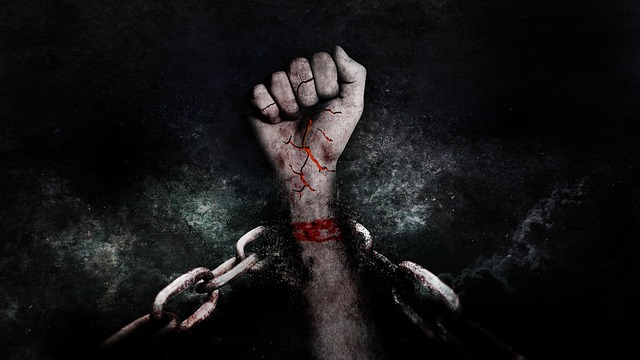Therefore, the Torah legislates for the case where a slave, having served for six years, chooses not to go free but to remain in servitude. This is a human reality that cannot be ignored. The Torah does not force freedom on those who are not yet ready for it. It recognizes that there are those who fear freedom, who prefer the security of the familiar, however oppressive, to the risks of liberty. The Torah does not abolish slavery overnight. It sets in place a series of laws designed to lead people, step by step, to the abolition of slavery as an institution.
This is a profound insight into the nature of social change. The Torah is realistic about what it is possible to achieve at any given time. It is not idealistic. It does not demand the impossible. It does not believe in instant transformation. It respects the pace at which human beings, and human societies, are capable of changing.
So it is with all moral progress. The Torah is a document of idealism â but it is also a work of profound realism. It is the supreme example of what Moses Mendelssohn called âthe middle way,â the golden mean between extremes. It teaches us to be dissatisfied with the world as it is, but to be patient with the world as it must be, knowing that the task of humanity is, in the words of the prophet Zechariah, âNot by might nor by power, but by My spiritâ (Zech. 4:6).
So the laws of slavery in this weekâs Parsha are not an endorsement of slavery but a critique of it. They are a step on the way to its eventual abolition. They remind us that freedom is not a gift but a challenge. It is not a possession but a responsibility. It is a journey, not a destination. That is the profound message of Parshat Mishpatim.
Many people have shown what Erich Fromm called âfear of freedom.â Rousseau spoke of âforcing people to be freeâ â a view that led in time to the reign of terror following the French Revolution.
The Torah does not force people to be free, but it does insist on a ritual of stigmatization. If a slave refuses to go free, his master âshall take him to the door or the doorpost and pierce his ear with an awl.â Rashi explains:
Why was the ear chosen to be pierced rather than all the other limbs of the body? Said Rabbi Yochanan ben Zakkai: …The ear that heard on Mount Sinai: “For to Me are the children of Israel servants” and he, nevertheless, went ahead and acquired a master for himself, should [have his ear] pierced! Rabbi Shimon expounded this verse in a beautiful manner: Why are the door and the doorpost different from other objects of the house? God, in effect, said: âThe door and doorpost were witnesses in Egypt when I passed over the lintel and the two doorposts, and I said: âFor to Me are the children of Israel servantsâ, they are My servants, not servants of servants, and this person went ahead and acquired a master for himself, he shall [have his ear] pierced in their presence.â
A slave may stay a slave but not without being reminded that this is not what God wants for His people. The result of these laws was to create a dynamic that would in the end lead to an abolition of slavery, at a time of free human choosing.
And so it happened. The Quakers, Methodists and Evangelicals, most famous among them William Wilberforce, who led the campaign in Britain to abolish the slave trade were driven by religious conviction, inspired not least by the biblical narrative of the Exodus, and by the challenge of Isaiah âto proclaim freedom for captives and for prisoners, release from darknessâ (Is. 61:1).
Slavery was abolished in the United States only after a civil war, and there were those who cited the Bible in defence of slavery. As Abraham Lincoln put it in his second Inauguration:
âBoth read the same Bible and pray to the same God, and each invokes His aid against the other. It may seem strange that any men should dare to ask a just God’s assistance in wringing their bread from the sweat of other men’s faces, but let us judge not, that we be not judged.â
Yet slavery was abolished in the United States, not least because of the affirmation in the Declaration of Independence that âall men are created equal,â and are endowed by their Creator with inalienable rights, among them âlife, liberty and the pursuit of happiness.â Jefferson, who wrote those words, was himself a slave-owner. Yet such is the latent power of ideals that eventually people see that by insisting on their right to freedom and dignity while denying it to others, they are living a contradiction. That is when change takes place, and it takes time.
If history tells us anything it is that God has patience, though it is often sorely tried. He wanted slavery abolished but He wanted it to be done by free human beings coming to see of their own accord the evil it is and the evil it does. The God of history, who taught us to study history, had faith that eventually we would learn the lesson of history: that freedom is indivisible. We must grant freedom to others if we truly seek it for ourselves.
- How do you think our family stories and memories help us make better choices today?
- Why do some people fear freedom and prefer constraints, even when given the choice to be free?
- Why do you think God chose patience over immediate intervention when confronting human moral failings? Have there been other times in the Tanach where this has come up?
For additional interactive, multi-generational study on the Parsha and Haftara, please check out this weekâs Family Edition.

